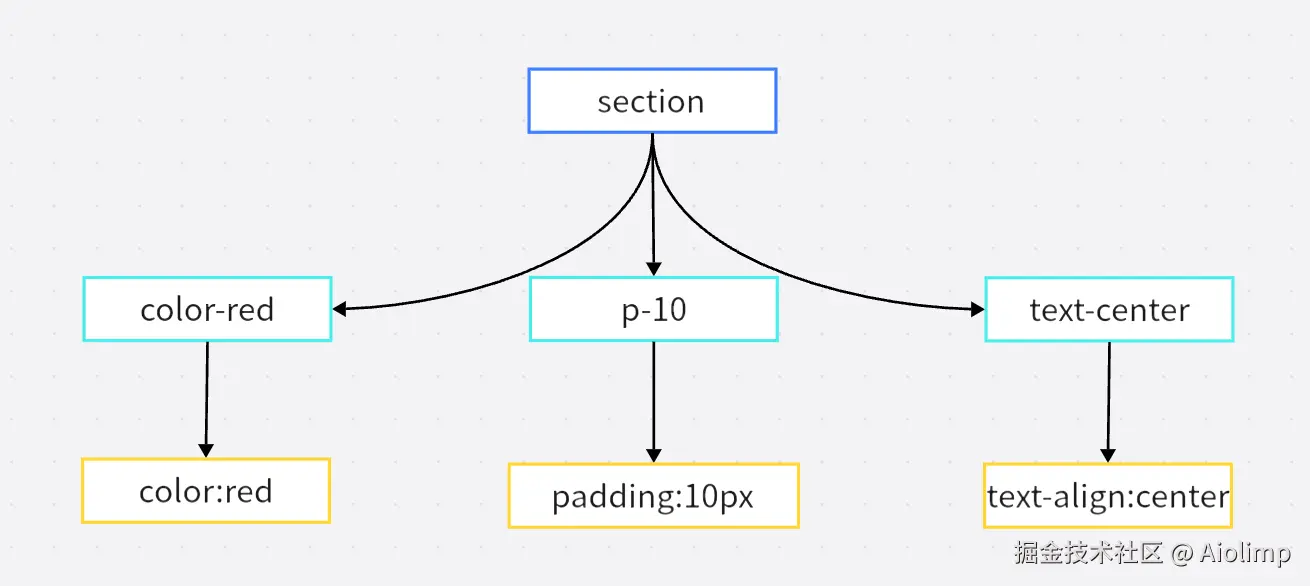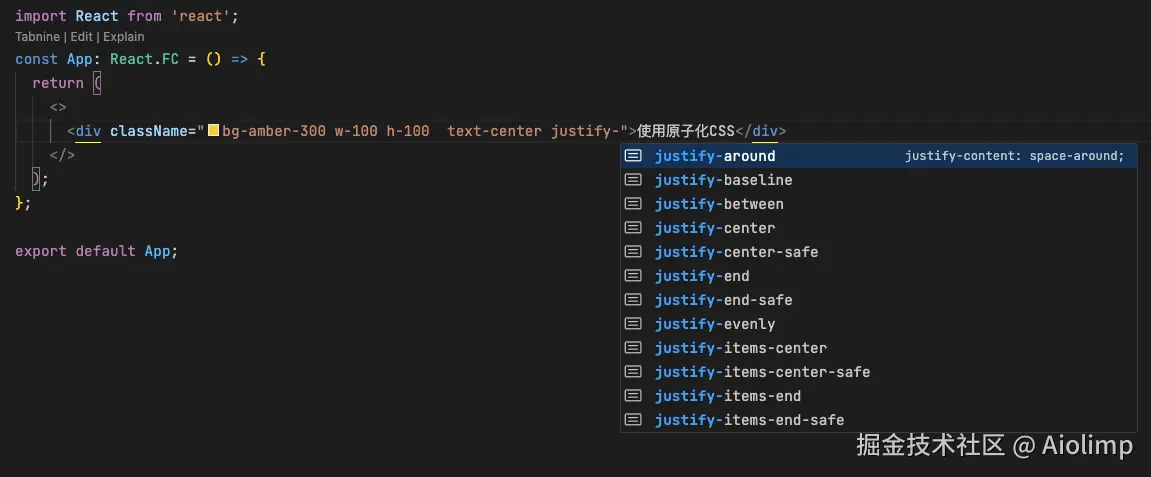css modules
什么是 css modules
因为 React 没有Vue的Scoped,但是React又是SPA(单页面应用),所以需要一种方式来解决css的样式冲突问题,也就是把每个组件的样式做成单独的作用域,实现样式隔离,而css modules就是一种解决方案,但是我们需要借助一些工具来实现,比如webpack,postcss,css-loader,vite等。
如何在Vite中使用css modules
css modules,可以配合各种css预处理去使用,例如less,sass,stylus等。
sh
npm install less -D # 安装less 任选其一
npm install sass -D # 安装sass 任选其一
npm install stylus -D # 安装stylus 任选其一在Vite中css Modules 是开箱即用的,只需要把文件名设置为
xxx.module.[css|less|sass|stylus],就可以使用css modules了
- src/components/Button/index.module.scss
scss
.button {
color: red;
}- src/components/Button/index.tsx
tsx
//使用方法,直接引入即可
import styles from './index.module.scss';
export default function Button() {
return <button className={styles.button}>按钮</button>;
}- 编译结果, 可以看到
button类名被编译成了button_pmkzx_6,这就是css modules的实现原理,通过在类名前添加一个唯一的哈希值,来实现样式隔离。
html
<button class="button_pmkzx_6">按钮</button>修改css modules 规则
- 在vite.config.ts中配置css modules的规则
ts
export default defineConfig({
css: {
modules: {
localsConvention: 'dashes', // 修改css modules的类名规则 可以改成驼峰命名 或者 xxx-xxx命名等
generateScopedName: '[name]__[local]___[hash:base64:5]', // 修改css modules的类名规则 name 是文件名 local 是类名 hash 是hash值
},
},
});例子 例如设置为(localsConvention:camelCaseOnly)
!WARNING
camelCase 和 camelCaseOnly 区别在于,camelCase 会把非驼峰的命名转为驼峰,并保留之前的类名,而 camelCaseOnly 只会把非驼峰的命名转为驼峰,并删除之前的类名。
- src/components/Button/index.module.scss
scss
.button-red {
color: red;
}- src/components/Button/index.tsx
设置为驼峰之后,使用的时候需要使用驼峰命名,例如
buttonRed,而不是button-red。
tsx
import styles from './index.module.scss';
export default function Button() {
return <button className={styles.buttonRed}>按钮</button>;
}例子 例如设置为(localsConvention:dashesOnly)会将所有-的类名转化为驼峰,并且原始的类名会被删除
!WARNING
dashes 和 dashesOnly 区别在于,dashes 会保留原始的类名,而 dashesOnly 会删除原始的类名。
- src/components/Button/index.module.scss
scss
.button-red {
color: red;
}- src/components/Button/index.tsx
设置为原始命名之后,使用的时候需要使用驼峰命名,例如
buttonRed,而不是button-red。
tsx
import styles from './index.module.scss';
export default function Button() {
return <button className={styles.buttonRed}>按钮</button>;
}!CAUTION
如果想同时支持驼峰命名和
-连接的命名,可以设置为localsConvention:[camelCase|dashes],这样就可以同时支持驼峰命名和-连接的命名。
例子 修改css modules的类名规则
- 在vite.config.ts中配置css modules的规则
ts
export default defineConfig({
css: {
modules: {
generateScopedName: '[local]_[hash:base64:5]' // 只保留类名和哈希值
// 或者
generateScopedName: '[hash:base64:8]' // 只使用哈希值
// 或者
generateScopedName: '[name]_[local]' // 只使用文件名和类名,没有哈希
// 或者
generateScopedName: '[local]--[hash:base64:4]' // 自定义分隔符
},
},
});编译结果
html
<button class="button_pmkzx_6">类名 + 哈希值</button>
<button class="pmkzx_6">哈希值</button>
<button class="index-module_button">文件名 + 类名</button>
<button class="button--pmkzx_6">类名 + 分隔符 + 哈希值</button>维持类名
在样式文件中的某些样式,不希望被编译成css modules,可以设置为global
scss
解释
.app{
background: red;
width: 200px;
height: 200px;
:global(.button){
background: blue;
width: 100px;
height: 100px;
}
}
tsx
//在使用的时候,就可以直接使用原始的类名 button
import styles from './index.module.scss';
const App: React.FC = () => {
return (
<>
<div className={styles.app}>
<button className='button'>按钮</button>
</div>
</>
);
}css-in-js
css-in-js 是将 CSS 代码 跟 JS 代码 混合在一起,通过 JS 来动态的生成 CSS 样式,但是这样的话与我们的认知是背道而驰的,正常应该是 CSS JS HTML 分离的,但是由于 CSS 缺乏作用域,所以形成了 css-in-js 这种写法,注意 css-in-js 并不是一种技术,而是一种思想。
优缺点
优点:
- 可以让 CSS 拥有独立的作用域,阻止 CSS 泄露到组件外部,防止冲突。
- 可以动态的生成 CSS 样式,根据组件的状态来动态的生成 CSS 样式。
- CSS-in-JS 可以方便地实现主题切换功能,只需更改主题变量即可改变整个应用的样式。
缺点:
- css-in-js 是基于运行时,所以会损耗一些性能(电脑性能高可以忽略)
- 调试困难,CSS-in-JS 的样式难以调试,因为它们是动态生成的,而不是在 CSS 文件中定义的。
styled-components
1.安装
sh
npm install styled-components2.创建一个 Button 组件
tsx
import styled from 'styled-components';
const Button = styled.button`
background: red;
color: white;
border: 2px solid skyblue;
`;
function App() {
return (
<>
<Button>我是按钮</Button>
</>
);
}
export default App; 我们可以看到,
我们可以看到,Button 组件的类名是通过js随机生成的的,这样就避免了类名冲突的问题。
3.更多用法
继承
tsx
import styled from 'styled-components';
const Button = styled.button`
background: red;
color: white;
border: 2px solid skyblue;
`;
// 继承上面的样式,然后再添加新的样式
const BlueButton = styled(Button)`
background: blue;
`;
function App() {
return (
<>
<Button>我是按钮</Button>
<BlueButton>我是蓝色按钮</BlueButton>
</>
);
}
export default App;
属性
我们可以通过 attrs 来给组件添加属性,比如 defaultValue,然后通过 props 来获取属性值。
tsx
import React from 'react';
import styled from 'styled-components';
interface DivComponentProps {
defaultValue: string;
}
// 通过 .attrs 方法设置默认属性和类型
const InputComponent = styled.input.attrs<DivComponentProps>((props) => ({
type: 'text',
defaultValue: props.defaultValue, // 从 props 中获取默认值
}))`
border: 1px solid skyblue;
margin: 20px;
`;
const App: React.FC = () => {
const defaultValue = '张三';
return (
<>
{/* 渲染带样式的输入框组件并传入默认值 */}
<InputComponent defaultValue={defaultValue}></InputComponent>
</>
);
};
export default App;全局样式
我们可以通过 createGlobalStyle 来创建全局样式, 然后放到 App 组件中。
tsx
import React from 'react';
import styled, { createGlobalStyle } from 'styled-components';
// 通过createGlobalStyle设置全局样式,一般放在一个单独的文件里
const GlobalStyle = createGlobalStyle`
body {
background-color: #f0f0f0;
},
* {
margin: 0;
padding: 0;
box-sizing: border-box;
}
ul,ol{
list-style: none;
}
`;
const App: React.FC = () => {
return (
<>
<GlobalStyle />
</>
);
};
export default App;动画
我们可以通过 keyframes 来创建动画。
tsx
import React, { } from 'react';
import styled, { createGlobalStyle,keyframes } from 'styled-components';
const move = keyframes`
0%{
transform: translateX(0);
}
100%{
transform: translateX(100px);
}
`
const Box = styled.div`
width: 100px;
height: 100px;
background-color: red;
animation: ${move} 1s linear infinite;
`
const App: React.FC = () => {
return (
<>
<Box></Box>
</>
);
}
export default App;原理剖析
这个技术叫标签模板, 是ES6 新增的特性,它可以紧跟在函数后面,该函数将被用来调用这个字符串模板
调用完成之后,这个函数的第一个参数是模板字符串的静态字符串,从第二个参数开始,是模板字符串中变量值,也就是${}里面的值
strArr:['\n color:red;\n width:', 'px;\n height:', 'px;\n', raw: Array(3)]args:[30, 50]
tsx
const div = function (strArr: TemplateStringsArray, ...args: any[]) {
return strArr.reduce((result, str, i) => {
return result + str + (args[i] || '')
}, '')
}
const a = div`
color:red;
width:${30}px;
height:${50}px;
`
console.log(a)
// 输出结果
// color:red;
// width:30px;
// height:50px;原子化 css
什么是原子化 css
原子化 CSS 是一种现代 CSS 开发方法,它将 CSS 样式拆分成最小的、单一功能的类。比如一个类只负责设置颜色,另一个类只负责设置边距。这种方式让样式更容易维护和复用,能提高开发效率,减少代码冗余。通过组合这些小型样式类,我们可以构建出复杂的界面组件。
原子化 css 基本概念
原子化 css 是一种css的编程范式,它将css的样式拆分成最小的单元,每个单元都是一个独立的css类,通过这些独立的css类来构建整个页面的样式,简单举个例子:
其核心思想就是无需重复定义样式,只需定义一次,然后通过组合这些小型样式类,来构建出复杂的界面组件。
html
解释
<style>
.color-red { color: red }
.text-center { text-align: center }
.p-10 { padding: 10px }
</style>
<section class="bg-red text-center p-10">
原子化 css
</section>
TailWind Css
TailWind 是原子化 css 的一种实现方式,它内置了许多细粒度的 class 类,这些细粒度的 class 类可以组合使用,来构建出复杂的界面组件。
如何使用 TailWind Css 4.0.1 最新版
- vite 项目
sh
npm install tailwindcss @tailwindcss/vite1. vite.config.ts
引入 tailwindcss 插件,然后配置 tailwindcss 插件
ts
import { defineConfig } from 'vite'
import react from '@vitejs/plugin-react-swc'
import tailwindcss from '@tailwindcss/vite'
export default defineConfig({
plugins: [react(), tailwindcss()],
})2.src/tailwind.css (新建一个文件) 引入 tailwindcss 的样式
css
@import "tailwindcss";3.src/main.tsx
引入 tailwindcss 的样式
tsx
import './tailwind.css'4.src/App.tsx 试用 tailwindcss 的样式
tsx
<section class="bg-red text-center p-10">
原子化 css
</section>5.打开Vscode或者Cursor,安装 TailWind Css 插件,这样编写代码的时候,会自动提示 tailwindcss 的样式

进阶用法@apply
上述代码中,类名用了很多都是堆在一起的,这样看起来很不美观,我们可以使用 tailwindcss 的 @apply 来解决这个问题。
- src/tailwind.css
css
@import "tailwindcss";
.text-bg {
@apply bg-amber-300 w-100 h-100 text-center justify-center;
}- src/App.tsx
效果是一样的,但是看起来更美观了
tsx
<div className="text-bg">使用原子化CSS</div>更多用法请参考 tailwindcss 自定义样式
!CAUTION
本文内容参考小满大佬